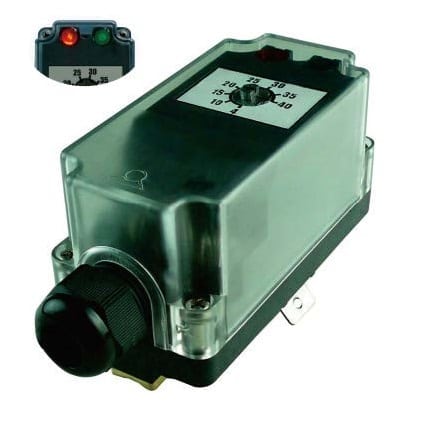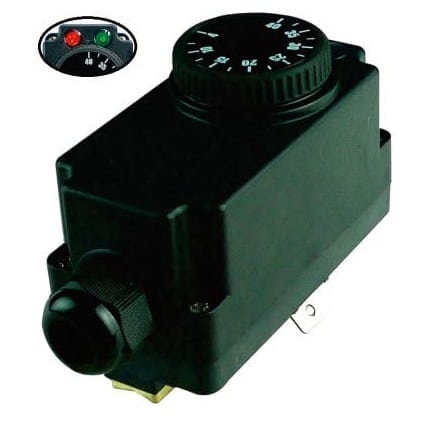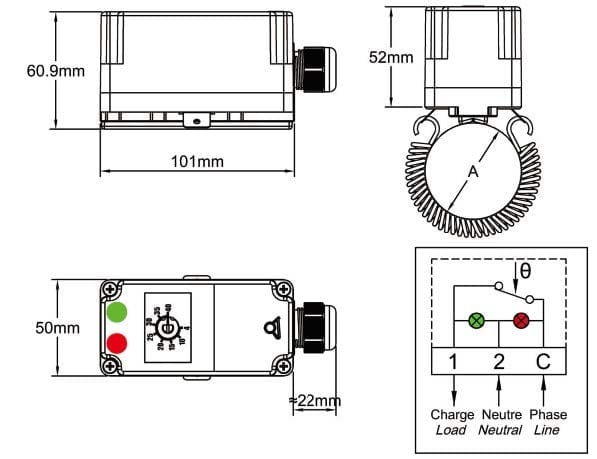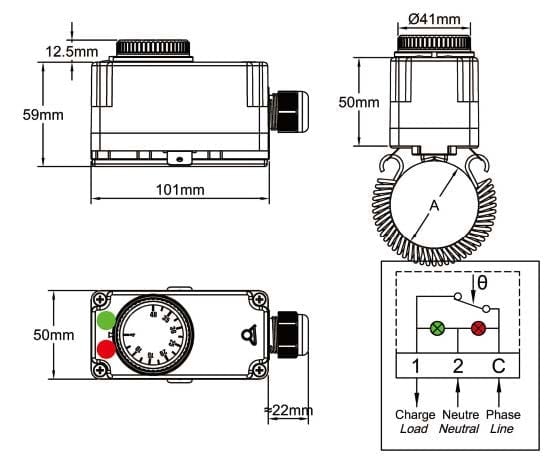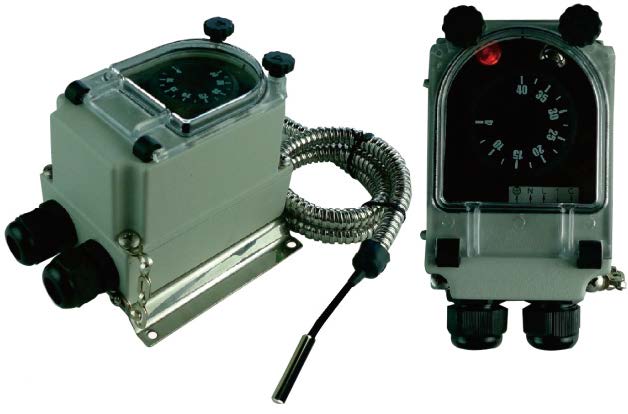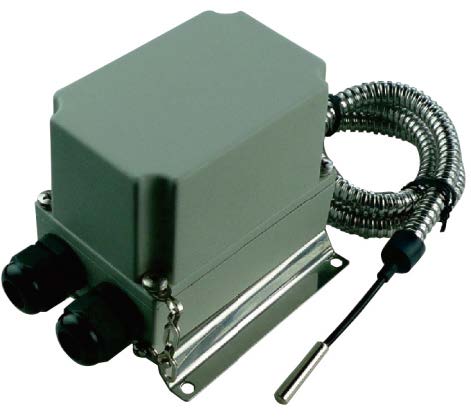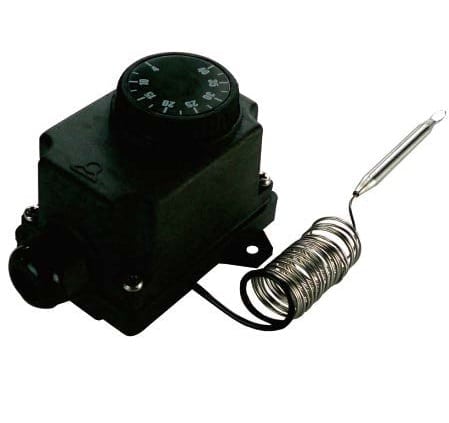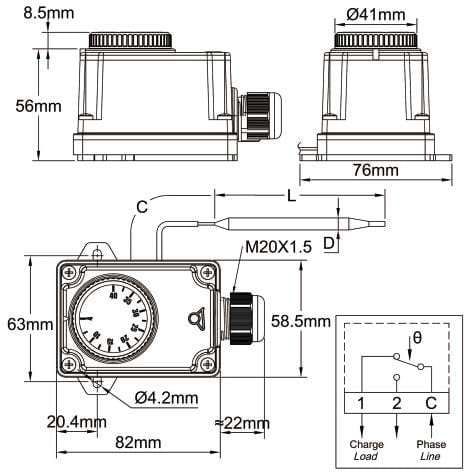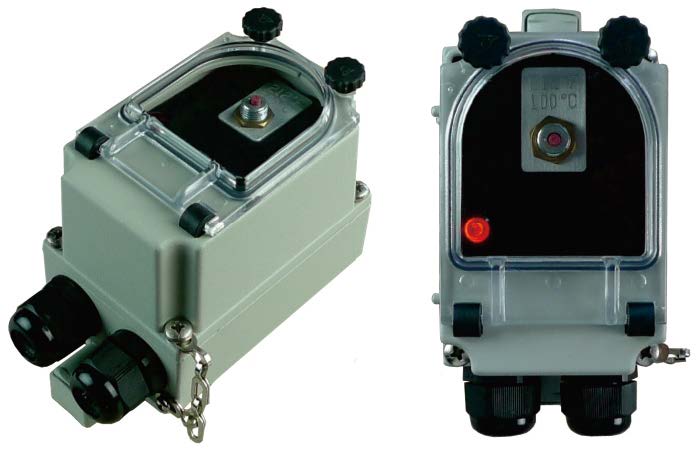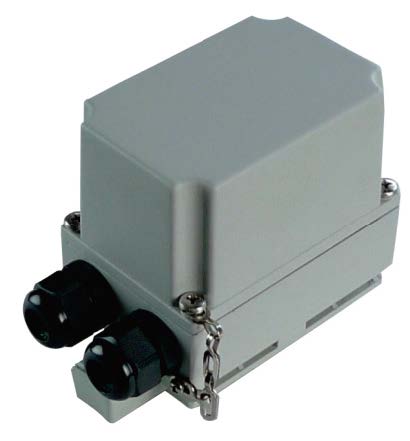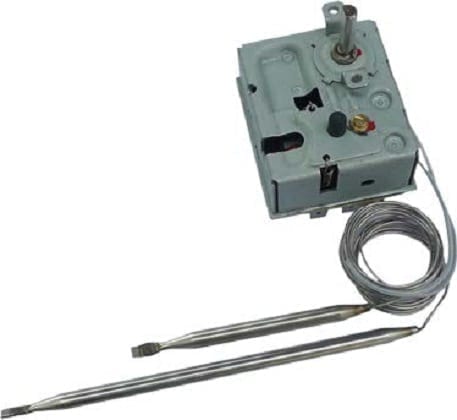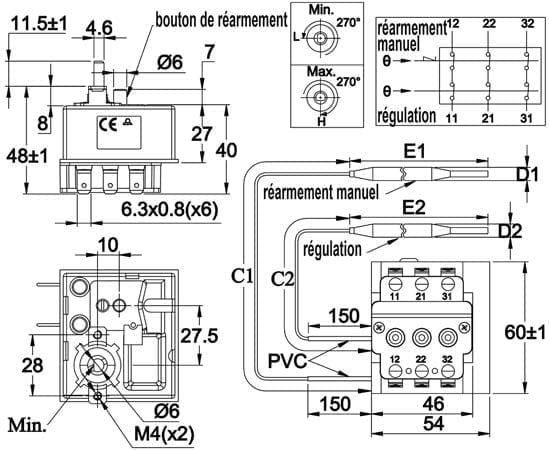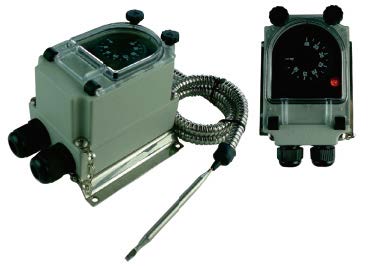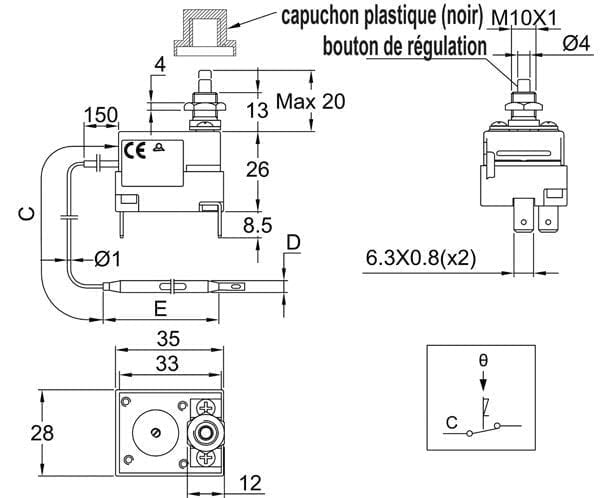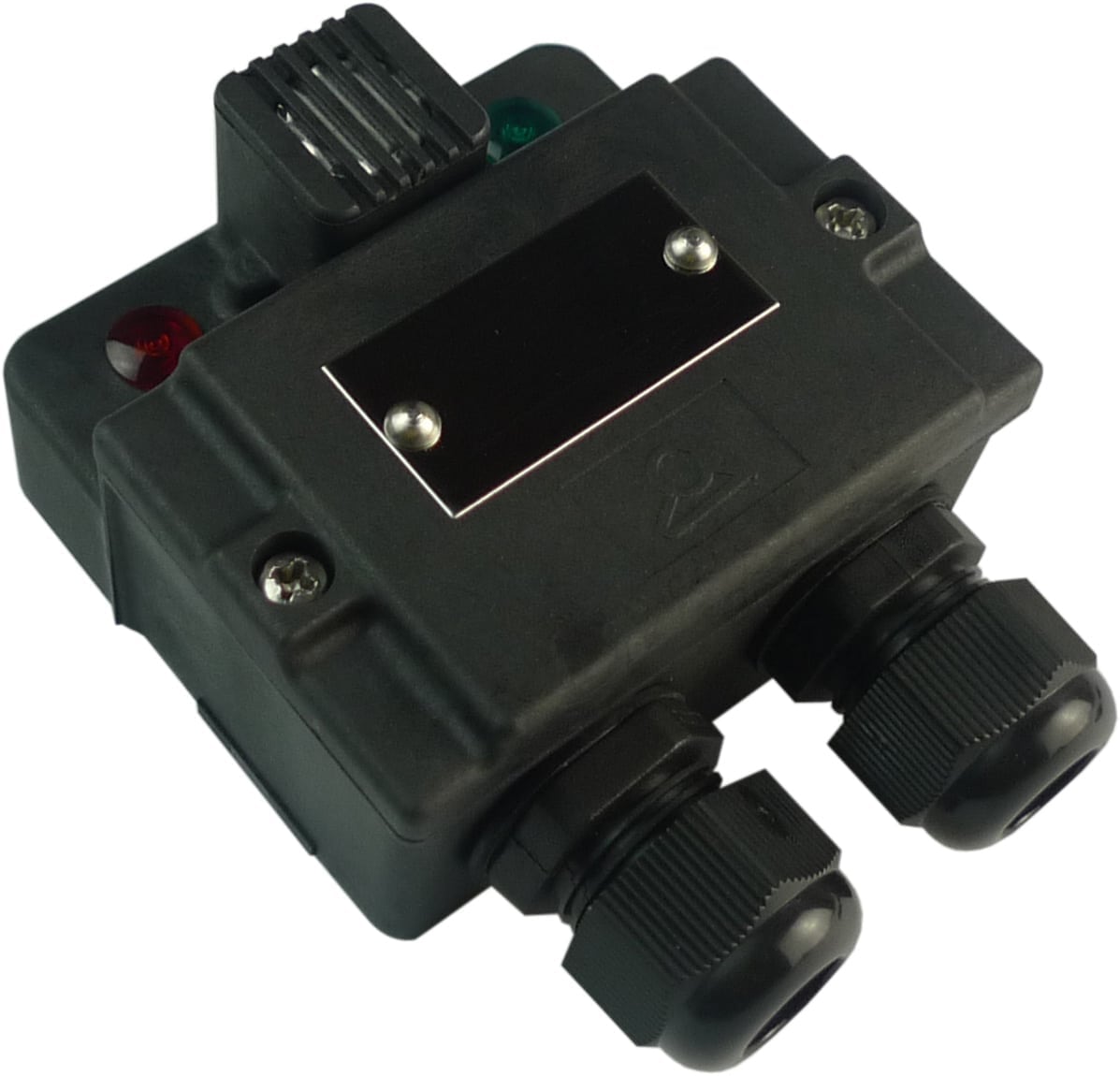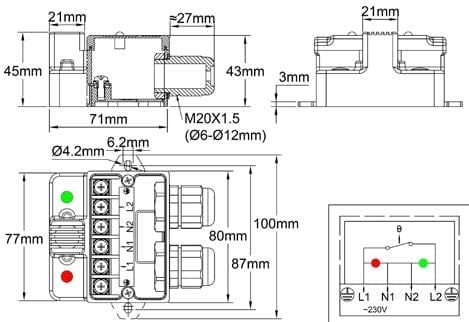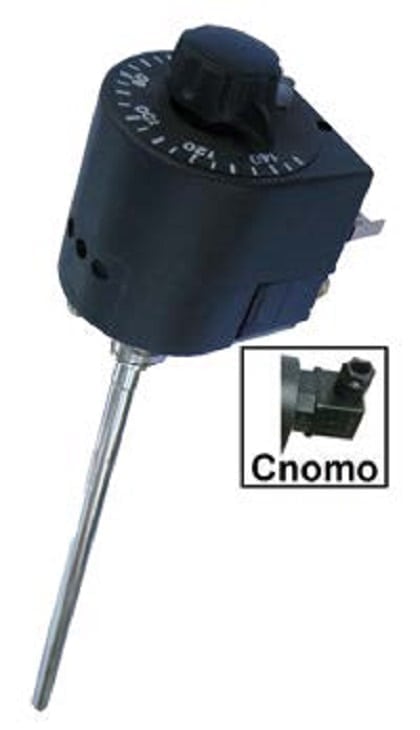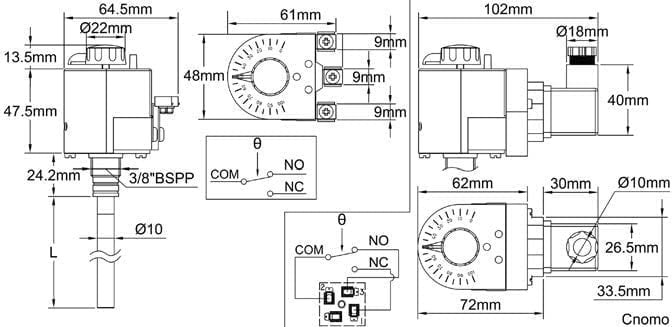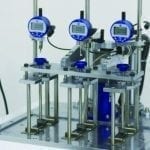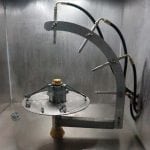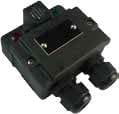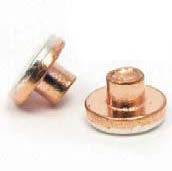Dia. 30 to 70mm pipe mounting thermostat IP55 with 2 built-in pilot lights
This thermostat is designed with a V shaped temperature sensitive nickel plated brass backside to improve thermal contact with the pipe, and two lugs for spring mounting. Suitable for pipes of 30 to 70 mm diameter.
| Housing raw material | |
|---|---|
| Color | |
| Ingress protection | |
| Contact style | |
| Contact Material | |
| Electrical rating | |
| Voltage | |
| Electrical life (cycles at rated value) | |
| Measurement type | |
| Sensing element | |
| Setting adjustment |
| Enclosure | Type | Operation | Contact | Measurement | Ranges °C | Models |
| IP55 | Control | Mechanical | SPNC | Pipe | 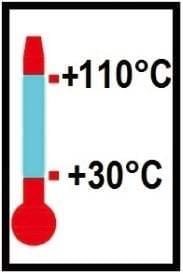 |
Y2H
& Y2P |
|
Material |
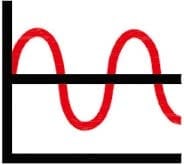 |
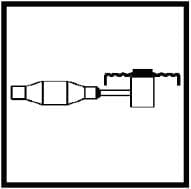 |
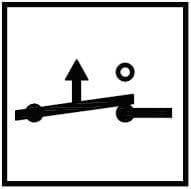 |
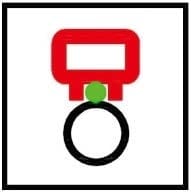 |
||
|
PC-ABS |
This thermostat is designed with a V shaped temperature sensitive nickel plated brass backside to improve thermal contact with the pipe, and two lugs for spring mounting. Suitable for pipes of 30 to 70 mm diameter.
Housing: PC-ABS, fiberglass reinforced, UL94V0. High impact and UV resistance, with waterproof gasket on thermostat shaft for external adjustment types. Internal adjustment types have a PC transparent cover, to visualize the pilot lights and the set point adjustment.
Cable input: ISO M20 cable gland, Black PA66, IP67, for cables from 6 to 12 mm dia.
Set point adjustment: By °C printed knob for external adjustment models, by screw driver and printed dial on internal adjustment models.. External adjustment types have an adjustable rotation limit system located inside the knob that allows reducing the set point adjustment span. °F values are available in option.
Sensing element: Liquid filled capillary , inside the nickel plated brass part in contact with the pipe.
Adjustment ranges: 30-90°C (85-195°F), 30-110°C (85-230°F)
Pilot lights: Allow to visualize the power supply and thermostat contact position (Phase and Neutral power supply is mandatory for pilot lights) .
Electrical connections: On screw terminals. (It is possible to connect 2 wires 1.5mm² on each terminal). In option, an auxiliary connection block can be added, providing 3 neutral terminals.
Mounting: By spring on pipe.
Contact: SPNC (open on temperature rise).
Electrical rating, resistive loads:
16A 250V, 50 ~60Hz: >100000 cycles,
20A 250V, 50 ~60Hz: ≥ 50000 cycles,
10A 400V, 50 ~60Hz: ≥ 50000 cycles.
Electrical rating, inductive loads: 6A 250V, 50 ~60Hz: >100000 cycles
Minimum Storage temperature: -35°C (-30°F)
Maximum ambient temperature: 60°C (140°F)
For more technical information ask 8G thermostat technical data sheet.
Main references
| Temperature adjustment range
°C (°F) |
References with external adjustment | References with internal adjustment | Differential °C (°F) |
| 30-90°C (85-195°F) | Y2H8GD030090AA8J | Y2P8GD030090AA8J | 2.5±1 (4,5±1,8) |
| 30-110°C (85-230°F) | Y2H8GD030110AA8J | Y2P8GD030110AA8J | 2.5±1 (4,5±1,8) |
Version with auxiliary 3 way neutral terminal: replace D0 by D1 in the reference
Downloadable
Datasheets
Related products
Remote temperature limiter boxes
Manual reset electronic adjustable limiter, remote sensor, IP65
Remote temperature control boxes
Pipe surface temperature limiter boxes
Bulb and capillary thermostats
Remote temperature control boxes
Bulb and capillary temperature limiters
Room and antifreeze temperature control boxes
Fixed setting ambiance or antifreeze thermostat, IP65 cable gland output, two pilot lights
Bimetal rod thermostats
Technical informations associated to this product
-
Main properties of plastic raw materials used for enclosures
The classic housings, with only 5 sides and a lid, require a long and costly layout, most of the time ignoring the application needs: security, fire resistance, water penetration, shocks, UV, temperature, etc. -
Electrical protection classes
The housings are designed to protect electrical equipment located inside. This protection must be considered in the electrical and environmental angles.) -
Overview of the JPC Y2 types plastic enclosures
Fixed setting ambiance or Antifreeze thermostat, IP65, cable gland output, without pilot light. -
Electrical contacts
As numerous mechanisms exist, we decided not to distinguish on the basis of constructive technique, but according to their operation speed, which is the key element.

